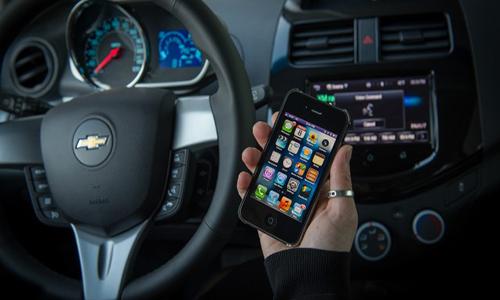Hands-free gadgets create safety hazards for drivers
Are those hands-free tech tools aimed at helping motorists keep their eyes on the road a safety hazard?
A new study commissioned by the American Automobile Association found that these tools which aim to cut down on "distracted" motorists driving" could be distractions themselves.
The findings released this week raise fears that motorists who use wireless, voice-activated tools as they heed warnings about texting and driving may be doing little to improve safety.
Researchers found that potentially unsafe levels of mental distraction can last for as long as 27 seconds after using some of these tools, which allow drivers to send texts and emails or perform other tasks without taking their eyes off the road.
"Drivers should use caution while using voice-activated systems, even at seemingly safe moments when there is a lull in traffic or the car is stopped at an intersection," said Marshall Doney, AAA's president and chief executive.
"The reality is that mental distractions persist and can affect driver attention even after the light turns green."
The study led by the University of Utah for the AAA Foundation for Traffic Safety rated 13 voice-activated systems -- 10 from vehicle manufacturers as well as Apple's Siri, Microsoft's Cortana and Google Now.
The study found that three systems created "moderate" levels of cognitive distraction, nine led to "high" levels of distraction and one created a "very high" distraction level.
Different cars were associated with varying levels of distractability. The lowest level was in the Chevrolet Equinox, the highest in the Mazda 6.
The researchers found that a driver traveling at 25 miles (40 kilometers) per hour continues to be distracted for up to 27 seconds after disconnecting from "highly distracting" phone and car voice-command systems, and up to 15 seconds after disconnecting from the moderately distracting systems.
"Just because these systems are in the car doesn't mean it's a good idea to use them while you are driving," says University of Utah psychology professor David Strayer, who led the research.
"They are very distracting, very error prone and very frustrating to use. Far too many people are dying because of distraction on the roadway, and putting another source of distraction at the fingertips of drivers is not a good idea. It's better not to use them when you are driving."
Related Posts

